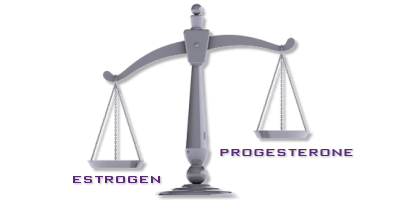PROGESTERONE FOR MEN
"Before using progesterone cream for the first time, please read these pages Estrogen Dominance How to use Progesterone Cream Vitamin D3 and Magnesium
Some may ask, why progesterone for men? Progesterone is commonly thought of as a 'female' sex hormone. This is misleading as it is vital to sustain not just health but life itself in all mammals of both sexes.
As a man gets older testosterone is converted into di-hydrotestosterone (DHT), which some believe is the cause of benign prostatic hyperplasia (BPH) and cancer, but some do not. Estrogen levels also increase as a man gets older. Estrogen is known to stimulate cell growth. Reading between the lines, because as yet, there is no definitive study done on this, it appears to be the increased estrogen level which is the problem and not the two testosterones. Progesterone is essential for men as it counter balances estrogen.
If in fact testosterone were the culprit, then men aged ±22 would have the highest incidence of BPH and cancer, as testosterone levels are at their highest point in the early 20's, but of course they don't. From the early 20's to the late 20's testosterone drops greatly, thereafter it continues to decline, but at a slower rate.
BPH starts affecting a man in his 50's and interestingly estradiol levels start climbing from the age of 50 and are at their highest point in men in their late 60's, but during the same period progesterone levels are declining. Progesterone for men becomes that much more important with age.
To prevent the conversion of testosterone to DHT, 5-alpha reductase inhibitors such as finasteride are usually given, but research has found that progesterone is a natural inhibitor of 5-alpha reductase.
Progesterone also down regulates the action of estrogen if used in a sufficiently high dose. The endogenous estrogen made by humans is now being supplemented by synthetic estrogens found in the environment. They are now found in food, air, water, plastics, skin care products, sunscreens, no one can avoid them. Some authorities speculate this is the cause of the increase in problems such as hyperplasia or cancers of any hormonally sensitive tissues, such as the prostate, endometrium, cervix and breasts. So, despite often being, erroneously, thought of as a 'female' hormone, progesterone for men is essential to preserve masculinity!
If you have any questions about Natpro Progesterone Cream
Below are the reference ranges for estradiol, testosterone and progesterone for men:
- Estradiol 0.5 - 2.2 pg/ml
- Progesterone 15 - 100 pg/ml
- Testosterone 44 - 148 pg/ml
As a reference point, the same hormones below are for women.
- Premenopausal
- Estradiol 1.3 - 3.3 pg/ml
- Progesterone 75 - 270 pg/ml
- Postmenopausal
- Estradiol 0.5 - 1.7 pg/ml
- Progesterone 12 - 100 pg/ml
- Range for all ages
- Testosterone 16 - 55 pg/ml
The Paradox.
Salivary hormone levels are often higher than serum (blood) levels when hormones are delivered topically (on the skin).
One of the most perplexing issues surrounding saliva testing is the odd phenomenon that topically delivered steroids cause a dramatic increase in salivary hormones without a concomitant increase in serum levels. For example, 30mg topical progesterone supplementation results in an average rise in salivary levels from about 50 pg/ml (0.05 ng/ml) to 500 to 3000 pg/ml (0.5 to 3 ng/ml), a 10 to 60-fold increase.
This increase is proportionally even greater when progesterone is supplemented at 100 to 200mg, a common topical dose used by many doctors, resulting in salivary progesterone levels rising to as high as 10,000 to 100,000 pg/ml (10-100 ng/ml). Under the same conditions, serum progesterone levels only increase about 4 fold, from about 0.5 to 2-3 ng/ml. The same disproportionate increase in salivary hormone levels is seen with topical delivery of all the other steroid hormones (eg. oestradiol, testosterone, DHEA. etc.).
Depending on the symptoms men should use approximately 10-100mg/0.3-3ml per day. If symptoms are severe, more maybe needed. As for women, it's best to use twice a day. Please read Prostate Problems and Man Boobs or 'Moobs'.
What to avoid
- sugar and artificial sweeteners
- all forms of processed foods, particularly those containing sugar
- refined grains, particularly wheat
- carbonated drinks, including the 'diet' drinks
- fruit juices
- biscuits and cakes
- white breads
- canned foods
- sauces
- sweets
- large meals
- all forms of estrogen
- oxidised fats, (ie margarine, refined oils, fried foods, in particular fried animal protein)
- pasteurised, homogenised milk; stimulants such as alcohol, coffee, black tea.
It is extremely important to have your vitamin D level tested. It should read anything from 70ng/ml to 100ng/ml and NOT 30ng/ml that they will tell us is correct. Vitamin D is vital and we are not getting enough from the sun. Please read my Vitamin D page for more information.

